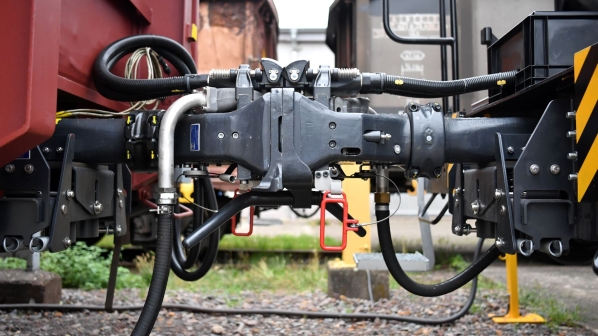The DAC is designed to accelerate the coupling and uncoupling of freight trains, which currently involves a high level of manual labour using screw couplings. It is hoped the technology will also increase the capacity and quality of freight services.
Over the next few months, 12 freight wagons will be equipped with DACs from four manufacturers to undergo a period of testing. One system will then be selected for installation on a test train of 24 wagons, which will spend several months travelling through Germany, Austria and Switzerland as well as other European countries. Testing of the system will take place in different scenarios including marshalling yards.
The project is being undertaken by the consortium which includes DB Cargo, SBB Cargo, Rail Cargo Austria and freight wagon leasers Ermewa, GATX Rail Europe and VTG. The pilot project, awarded by the German Federal Ministry of Transport and Digital Infrastructure (BMVI), is running from July until December 2022. BMVI will provide €13m for the project over the next two-and-a-half years.
The consortium, which is working alongside another project led by Shift2Rail, is aiming to identify a DAC that is suitable for implementation across Europe.
“The DAC opens the door to comprehensive automation and digitisation of rail freight transport,” says DB board member for digitisation and technology, Ms Sabina Jeschke. “The capacity of marshalling and transhipment stations can thus be significantly increased. The introduction of DAC represents a digital revolution for rail freight transport.”
“We want to grow and shift more freight onto the railways,” says DB board member for freight transport, Ms Sigrid Nikutta. “To achieve this, we need attractive offers for our customers. Technical innovations such as the DAC help us to do this. It makes rail freight transport faster and easier. This particularly strengthens single wagonload traffic as a green alternative to trucks. Transporting freight by rail is the easiest way to protect the climate.”

